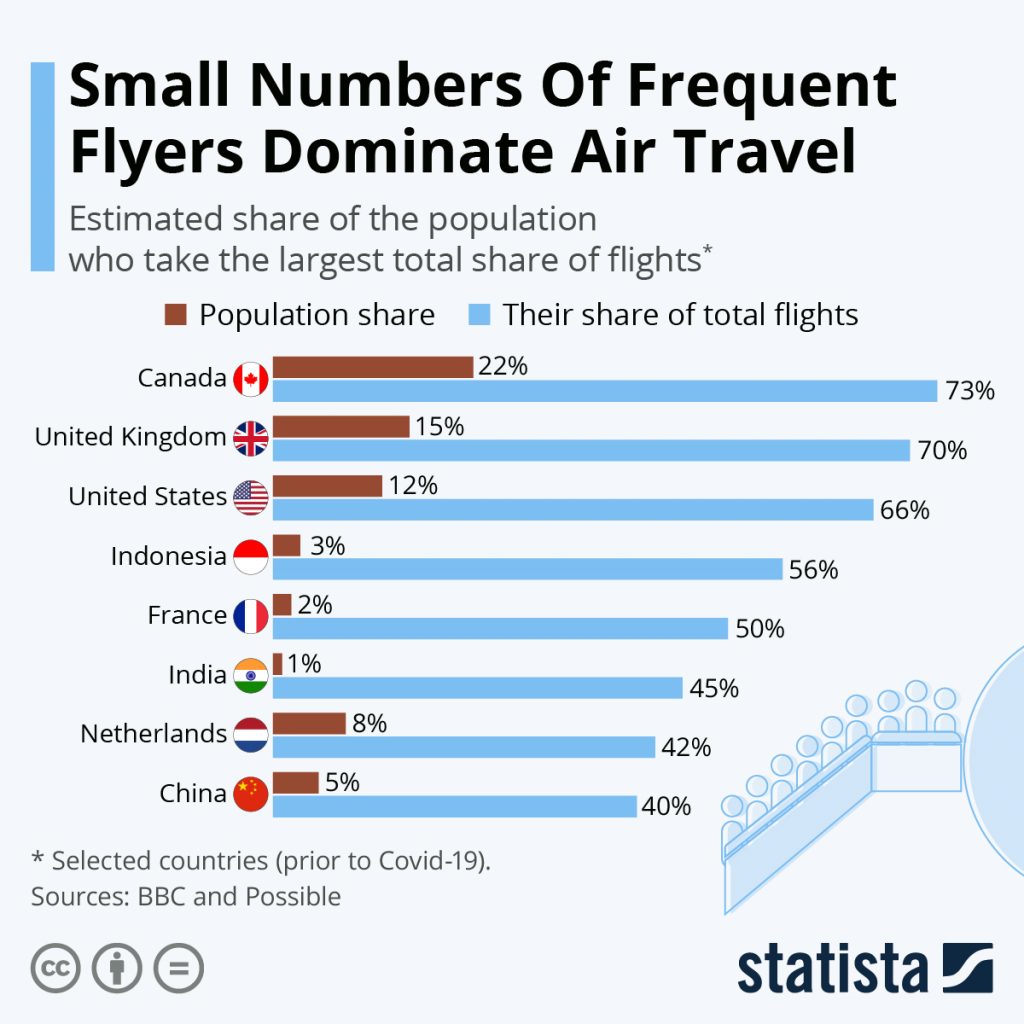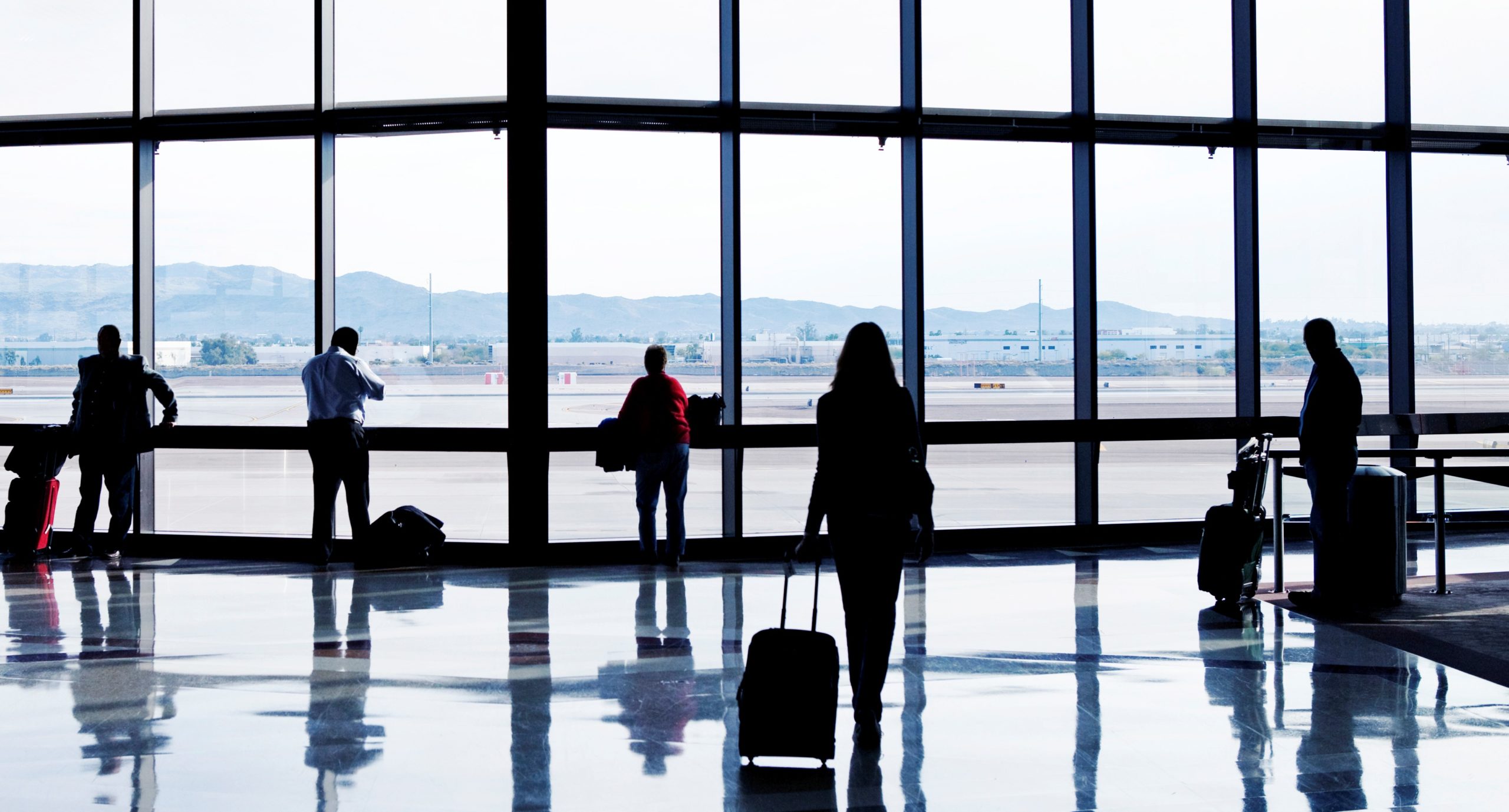According to new research reported by the BBC by climate advocacy group Possible, a limited number of frequent flyers dominated air travel prior to the pandemic, with the overwhelming majority only flying domestically. Just 12% of people in the United States, for example, fly 66 percent of the time. This pattern can also be seen in other developed countries, such as the United Kingdom, where 15% of the population flies 70% of the time. Environmental organisations are calling for the introduction of a Frequent Flyer Levy, which is a tax that rises with the number of flights a person takes per year.
The Possible research suggests the frequent flyer trend is mirrored in other wealthy countries.
- Canada : 22% of the population takes 73% of flights
- The Netherlands: 8% of people takes 42% of flights.
- China: 5% of households takes 40% of flights
- India: 1% of households takes 45% of flights.
- Indonesia: 3% of households takes 56% of flights.

This suggests that wealthier people are overwhelmingly liable for pollution that are now harming people all over the planet, with poorer communities bearing the brunt of the consequences. Meanwhile, less than half of the population in almost all of these countries flies each year.
While the poorest societies are already experiencing the effects of climate change, only a select few gain from high-carbon lifestyles. A large number of people ride. However, only a small few have the ability to travel regularly.
What can we do about it?
We propose a Frequent Flyer Levy, a progressive tax that rises as a person takes more flights or travels longer distances each year. This means that those who save for a family vacation or an annual vacation will not be affected unfairly, but those who travel several times a year will pay more. This will encourage us to address climate change in a more equitable manner, reducing inequality and allowing more people to travel.
Sources: Possible, BBC and Statista
